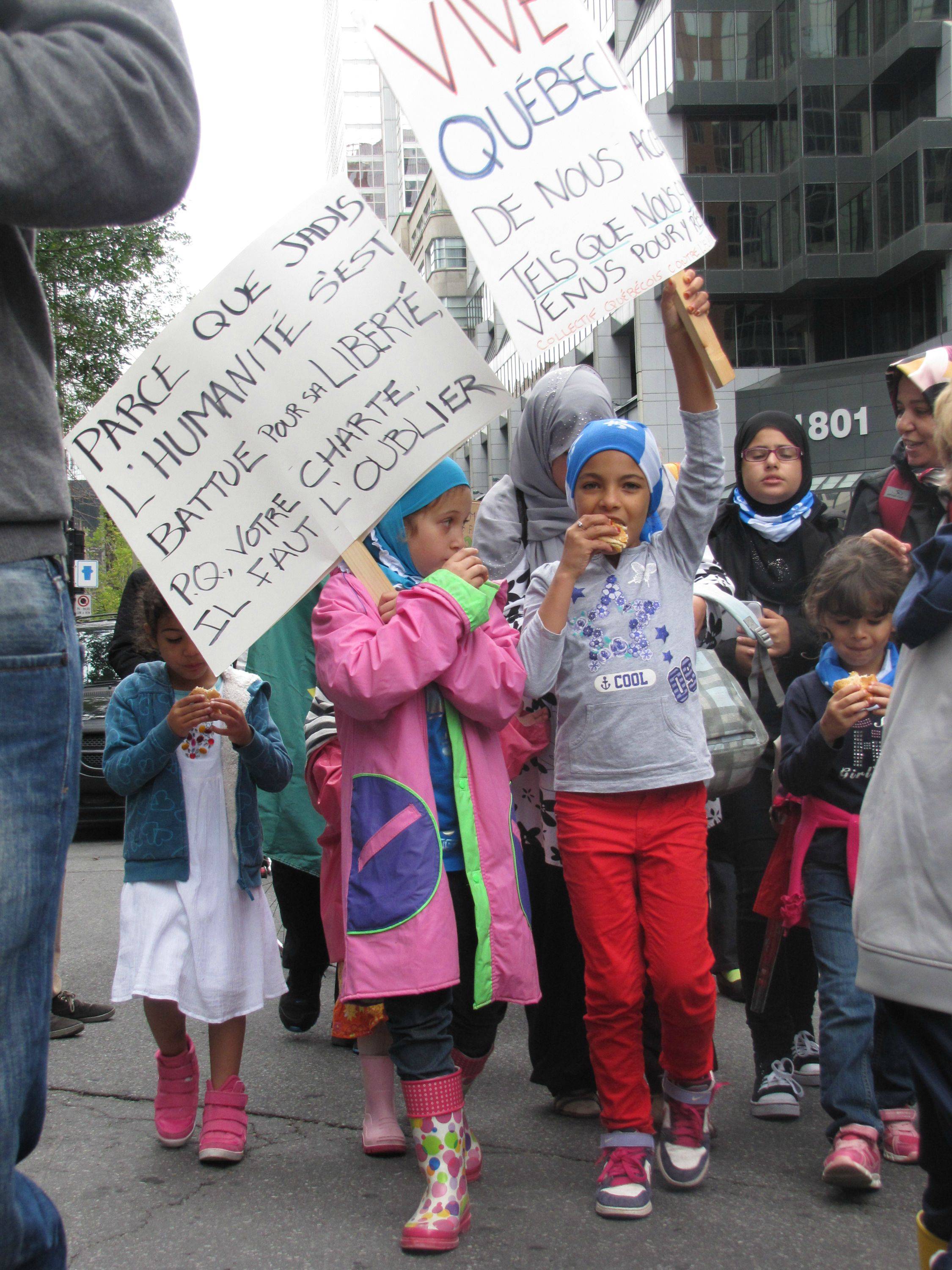Thousands of people flooded Montreal’s streets Saturday, Sept. 14, to protest against the Parti Québécois’ proposed Charter of Quebec Values, which would “prohibit the wearing of overt and conspicuous religious symbols by state personnel.” The route taken spanned over two kilometers down de Maisonneuve Blvd. from Place Émilie Gamelin (UQAM) to Place du Canada.
Protesters donned multiple religious symbols, such as hijabs, kippahs, and crucifixes through the downtown core in a march to voice their opposition to the controversial legislation. The crowd chanted slogans such as “PQ values are racist values” and “No to the charter of hate”.
“We came together in unity to send a strong message to Madame Marois to let her know that there are so many Quebecers opposed to this bad idea,” said Salam Elmenyawi, President of the Muslim Council of Montreal. “She is trying to solve some imaginary problem to divide the country, and making the stupid claim that it is for women’s equality. In fact, it destroys their equality […] in an exclusionary way.”
“I want to be able to live in this province,” said Sybil Riopelle, a convert to Islam who drove to Montreal from Gatineau for the protest. “If [the charter] happens, they’ll tell us we’ll have to live in another province if we want to wear our scarves. Just for the scarves. It doesn’t make any sense.”
Many took to shouting “Quebec is not France”, referring to the 2004 French law that banned veils, crosses and turbans from state schools, in addition to the 2011 law that banned the niqab in public places.
“Quebec is not France but Marois is Sarkozy,” said Mohammed, a masked protester who preferred to remain anonymous. “What France is doing is racist. What has their law done for them? We will not make the same mistakes they did.”
Others agreed that the proposed charter is not only infringing on the rights of religious minorities, but was racist as well.
“Christians are not affected by this law as much as others. It’s obviously pointed at immigrants who have different faiths,” said Sarena Santilly, who moved to Montreal from Toronto. “The Christians and people without faith who are passing the law are failing the population.”
Participants repeatedly took to shouting “Marois: racist”, an accusation that many did not approve of.
“I don’t think we should use such explosive language,” said Ehab Lotayes, who carried a sign criticizing Marois’ stance on the issue. “I think we should focus on the point itself, and not on cheap shots.”
André Lévesque was one of the few seen carrying a crucifix to the protest.
“I don’t want anyone telling me how big I can wear my cross,” said Lévesque.
While opposed to the charter, he saw no reason why the crucifix in the National Assembly should be taken down. “Canada was built on Christianity. This is a Christian civilization, and if they’re not happy, they can move somewhere else.”
Marois has previously said that the crucifix in the National Assembly in Quebec City would not be removed under the new rules. A poll by survey firm SOM places support for the charter at 66 percent, or two-thirds of all Quebecers, according to CBC News.
However, opponents of the charter are willing to fight the legislation, should it pass.
“We will take it to the Supreme Court,” said Elmenyawi. “All the way to the United Nations, if we have to.”
